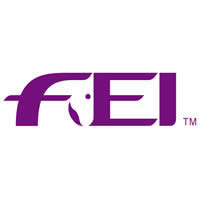The FEI has published the first section of a three-part Report following its investigation into the outbreak of the neurological form of Equine Herpes Virus (EHV-1) in Spain in February 2021. The outbreak resulted in the deaths of 18 horses in mainland Europe and confirmed related cases in 10 countries: Belgium, Denmark, France, Germany, Italy, Qatar, Spain, Slovakia, Sweden, and Switzerland.
The FEI pledged to have a comprehensive and fully transparent investigation into every aspect of the outbreak and to make the full findings public. The investigation, which focused on venues where there were related cases, has shown that there were systemic failures in a number of areas and the published Report details those.
In order to make the Report as complete as possible, it has been broken down into three parts. The section of the Report published as Part 1 provides a comprehensive and factual picture of the outbreak, including the series of events, causes, roles and responsibilities, and analysis. It evaluates what was done correctly and identifies where there were failings, and lessons learned.
Additionally, Part 1 covers accountability, lack of preparedness, and measures that have already been taken to rectify that, including enhanced jurisdiction for the FEI and reinforced Rules. Blocking of sick and in-contact horses in the FEI Database to prevent further transmission, the importance of risk assessment, both pre- and post-outbreak, pre-event onsite regulatory checks, and the creation of Emergency Response Units are also covered. Multiple external reports are included as Annexes.
The 39-page Report, plus 96 pages of Annexes, has been produced by FEI Veterinary Director Dr Göran Åkerström and Grania Willis, former FEI Communications Director and now Executive Consultant to the FEI. There has also been input from the FEI Veterinary Epidemiology Working Group and other veterinary experts, FEI President Ingmar De Vos and Secretary General Sabrina Ibáñez, and the FEI Veterinary and Legal Departments.
Part 2 of the Report, which will be published in advance of the FEI Sports Forum 2022 (25-26 April), covers the stringent measures implemented to allow Return to Competition following the six-week FEI-imposed lockdown on international sport in mainland Europe. This section of the Report will focus on the EHV-1 By-Laws and sanctioning system, and evaluate their effectiveness, plus the elements of these that were subsequently incorporated into the FEI Veterinary Regulations 2022 approved at the FEI Hybrid General Assembly in November 2021.
Part 3 of the Report, which will be presented at the FEI Sports Forum, will look at the way forward, including potential global vaccination protocols. Professor Lutz Goehring, a world-renowned specialist in equine infectious diseases and particularly EHV at the Gluck Equine Research Center, will present his findings on the benefits and drawbacks of vaccination, focusing on the scientific evidence of whether mandatory vaccination against EHV-1 is protective against outbreaks at FEI Events. This presentation will be included in Session 8: FEI Veterinary Regulations on Day 2 of the FEI Sports Forum (26 April).
“The Report into last year’s EHV-1 outbreak in Spain is a significant body of work which offers a forensic examination of all elements of the outbreak,” FEI President Ingmar De Vos said. “The first part of the Report looks at what went wrong and what the FEI and our community did or could have done to minimise the impact and spread of the virus. It is clear that mistakes were made, and we all need to learn from them so we ensure that we never have an outbreak of such devastating impact again.
“There has to be accountability and everyone – including the FEI – has to take their share of responsibility. As you can see in the text published today, individual accountabilities will need to be established by the FEI based on the contents of this Report prior to any further potential actions. The FEI Legal Department will make a thorough analysis and the findings of any resulting legal processes will be made public in due course.
“The significance of the investigation findings and the Report itself have been brought into sharper focus by the current outbreak in the United States, once again highlighting the fact that there will never be zero risk with EHV. What we must do at every Event and in every home barn is to ensure that correct biosecurity measures are in place for the safety of our horses. And we now have the tools to do that, provided we work together as a community to ensure enforcement and compliance.”
The FEI thoroughly assessed whether the investigation and resulting report should be outsourced or conducted internally. FEI Veterinary Director Dr Göran Åkerström explained the rationale: “Outsourcing to a third party would have required identifying and putting together a group of individuals with top-level expertise in veterinary epidemiology, and comprehensive knowledge of European Union and national legislation. The group would then have had to be fully briefed on every aspect of the outbreak before they could even begin their work.
“As the international governing body, the FEI was right at the centre of events and was already in possession of communications between all parties throughout the outbreak. Any third party would have been dependent on FEI Headquarters to get that information, which would have further delayed the investigation, production, and eventual publication of the Report. So a decision was made internally that the investigation, collation of evidence and production of the Report would be done by FEI Headquarters.”
Part 1 of the Report into the outbreak of the neurological form of Equine Herpes Virus (EHV-1) in Spain in March 2021 is available here.
Media contacts:
Olivia Robinson
Director, Communications
olivia.robinson@fei.org
+41 78 750 61 35
Shannon Gibbons
Manager, Media Relations & Media Operations
shannon.gibbons@fei.org
+41 78 750 61 46+


